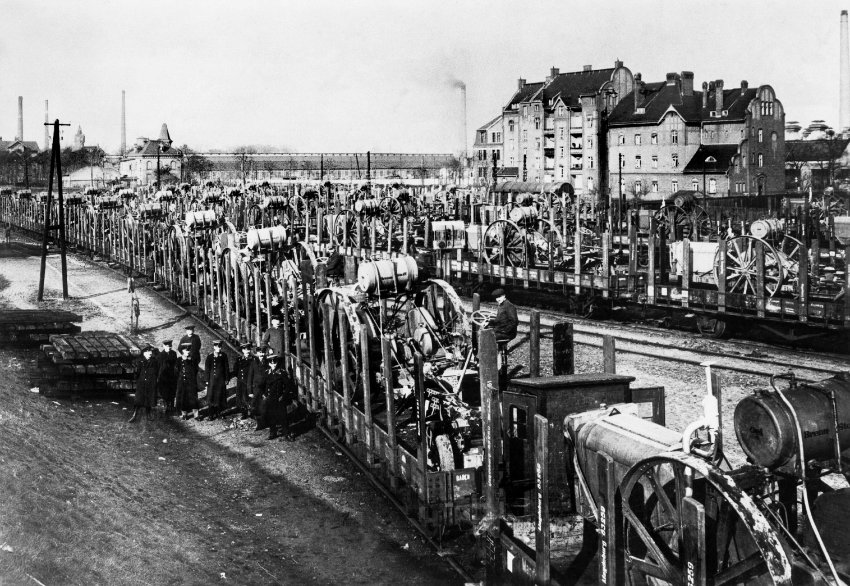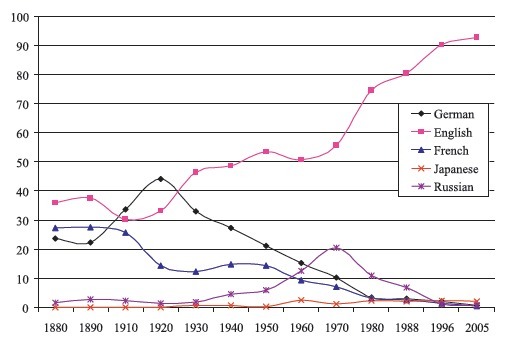I'm surprised there hasn't been a good answer yet.
The US entered WWI as a culmination of a number of diplomatic missteps by Germany, centering around unrestricted submarine warfare.
Initially, the US wanted to be neutral. Part of this was a public support of Neutral Rights, in particular the rights of free shipping. The British were the first to fall afoul of this, since the British started to twist the idea of "contraband" laws to a full blockade. Contraband used to have quite a specific meaning, but British said "okay, now food is contraband, since food can be used to feed armies as well as civilians, so we won't let you send it to Germany".
At the same time Germany (thanks to the machinations of people like Tirpitz) started thinking oh, submarines are a wonderwaffe, submarines can knock Britain out of the war fast! (By cutting off food btw, food is the real target. WWI isn't WWII, the US isn't an industrial superpower.) The British actions gave them the excuse, and serious shenanigans were pulled to get unrestricted submarine warfare started. But there's a problem: they barely had a double digits number of submarines. How were they supposed to blockade all of Britain?
The answer: Terror tactics. They knew they can't sink all the ships, so they will try to scare ships from sailing. This means being as horrible as possible, even more than submarine captains wanted. They told captains to target passenger ships, they told them to launch attacks without warning even though they didn't want to. It's ethically problematic, but hey, the sooner we get them to stop sailing the sooner the war's over right?
Now this hits America. America was already cross with Britain for the blockade, suddenly Germany is gonna do Blockade+. America sends Germany a very stern warning note in Feb 1915 - we're going to apply the same rule we did to the British. This was the idea of strict accountability. The rules of war says you can't kill civilians, so we're going to make you pay for every american life. It doesn't matter what kind of boat they are on, it's your responsibility on how you carry out your blockade. They draw this line in the sand before the Germans fire a single shot.
Then the Germans sink a bunch of passenger ships. The Lusitania is just one of them. There's also the Falaba, the Hesperian, the Arabic, the Sussex, and so on. The Americans start sending messages along the lines of "omg, wait wtf, you are actually attacking passengers deliberately???" The key argument to the Americans is actually consistency. Wilson's already positioned himself as the big world peace guy, and he's made very public statements about Strict Accountability and all that. And now the Germans are going beyond even just accidentally getting some Americans killed to DELIBERATELY KILLING AMERICAN CITIZENS. To not make an absolute farce of themselves they have to make a stand. The significance of Lusitania is that suddenly all the bullshit falls away - the Germans are doing unrestricted submarine warfare for reals. All that munitions stuff is nonsense, because even as they are talking about that, other liners are getting sunk and surely they don't all have war materiel in them.
After all these incidents, the Germans would be a bit evasive, they would have a big internal argument, make some excuse, and eventually make a promise. A number of promises. Which they break, sometimes by accident, sometimes not. The US is more and more distrustful of them over time, leading to Wilson making a speech in Congress that essentially says "the germans are liars, none of their promises are worth anything".
The Germans come up with one last deal: If the Americans won't break off relations, and would instead help put pressure on the British re: the blockade, they'll play super-special-nice and just do cruiser rules. This gets us up to April 1916. That's the Sussex pledge. The US accepts this, but makes very clear - this is the last chance, all those previous times you made a promise but then some of our guys get killed a few months later - you keep saying it's not on purpose but by now we're really thinking it is on purpose. This time had better be the last.
The US plays nice with Germany for a bit. They push for peace talks. Wilson does a big Peace Without Victory speech in Jan 1917. The US has a big talk about whether they will deny armed British merchant ships from operating in US ports. Certainly there were elements in the US government who hate Germany's guts, but broadly the US tries to keep up its commitments.
But in Germany the hardliners are taking over. The Sussex pledge costs the moderates in the German government a lot politically, so the military starts going crazy. The US can see this, BTW. Someone comes up with a bullshit statistic - if we sink X ships, and we can, we can defeat Britain in 6 months. It doesn't matter if the Americans declare war because subs can sink all US troop transports. The Kaiser buys it.
So suddenly one day the US is having buddy-buddy peace talks with Germany, and then all of a sudden the Germans give them a message: We are going to do unrestricted submarine warfare. And it's going to be worse than before. We are going to deliberately target American ships. And we're gonna start doing it tomorrow. And there's nothing you can do or say to stop us.
3 days after this incident Wilson breaks off diplomatic relations. A few days later he goes to congress to arm US merchant ships so they can shoot at Uboats. The Austrians try to act as go betweens during March, but the Kaiser says "If Wilson wants to declare war, he should hurry up and do it". This was after the Zimmerman telegram (March 3) btw.
And so Wilson declares war.
So the short answer is that it's a sequence of making promises, then breaking them, and then finally breaking a big promise in a Very Clear And Deliberate Way.

